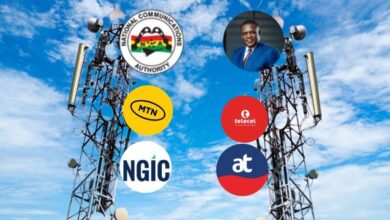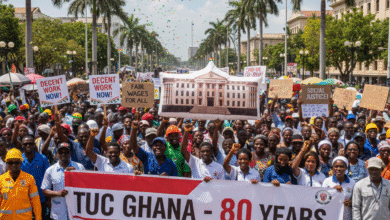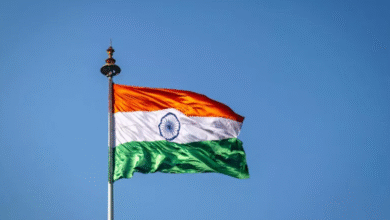Paraded for Pity, Exploited for Profit: Ghana Must End the Inhuman Roadside Extortion using Persons with Disabilities

By Ansah, Moses Teye-Akam
Every day across Ghana’s cities, particularly in traffic-heavy zones, a disturbing spectacle unfolds persons with disabilities are paraded in the streets to beg for money, often under the guise of needing urgent medical care. What may appear as a humanitarian appeal is, in reality, a calculated and exploitative scheme. Investigations and public observation reveal that these individuals are rotated among different traffic points, exchanged between handlers, and used repeatedly without any medical intervention ever taking place.
This practice is not only deceptive it is criminal. It violates the dignity and rights of persons with disabilities, undermines public trust, and emboldens organised groups who profit from the suffering of others. Ghana’s commitment to human rights and disability inclusion is being eroded in plain sight.
The United Nations Convention on the Rights of Persons with Disabilities (CRPD), ratified by Ghana in 2012, explicitly prohibits exploitation and abuse. Locally, the Persons with Disability Act, 2006 (Act 715) guarantees respect, protection, and equal participation for persons with disabilities. Yet, these laws are routinely flouted by those who treat vulnerable individuals as tools for extortion.
Under Ghana’s Criminal Offences Act, 1960 (Act 29), soliciting funds under false pretences constitutes fraud and extortion. The deliberate movement of these groups to avoid detection suggests coordinated criminal activity. Many of the persons with disabilities involved are likely victims or offenders themselves manipulated by handlers who reap the financial rewards while exposing them to public ridicule and further marginalisation irrespective of the benefit they may also gain.
Why Authorities Must Intervene
The consequences of this unchecked abuse are far-reaching:
- Human Rights Violations: It normalises the exploitation of persons with disabilities and contradicts Ghana’s legal and moral obligations.
- Public Trust Erosion: Genuine fundraising efforts risk being dismissed as scams, reducing support for those truly in need.
- Criminal Empowerment: Organised groups grow bolder, expanding their operations and influence.
- National Reputational Damage: Ghana risks being perceived as indifferent to the suffering of its most vulnerable citizens.
Recommendations for Action
To address this problem, the following measures are proposed:
- Law Enforcement: Police and city authorities must investigate and dismantle these syndicates, prosecuting offenders under existing laws.
- Social Welfare Support: The Ministry of Gender, Children and Social Protection, along with the Department of Social Welfare, should identify and assist exploited individuals, ensuring their safety and rehabilitation.
- Public Education: National campaigns must inform citizens about the difference between legitimate charity and exploitative schemes.
- Civil Society Collaboration: Organisations like the Ghana Federation of Disability Organisations (GFD) should be empowered to monitor, report, and support interventions.
Conclusion
The roadside exploitation of persons with disabilities for financial gain is both a human rights violation and a criminal act. It dehumanises vulnerable individuals while defrauding the public under the guise of charity. Ghana cannot afford to ignore this phenomenon, as doing so undermines the dignity of persons with disabilities and emboldens criminal exploitation.
Ghana cannot afford to look away. This is a stain on our collective conscience. Protecting the dignity of such persons is not just a legal requirement it is a moral imperative. The time has come for law enforcement agencies, social welfare institutions, and civil society to act decisively. Protecting the dignity and rights of all citizens especially the most vulnerable is a constitutional and moral obligation.




